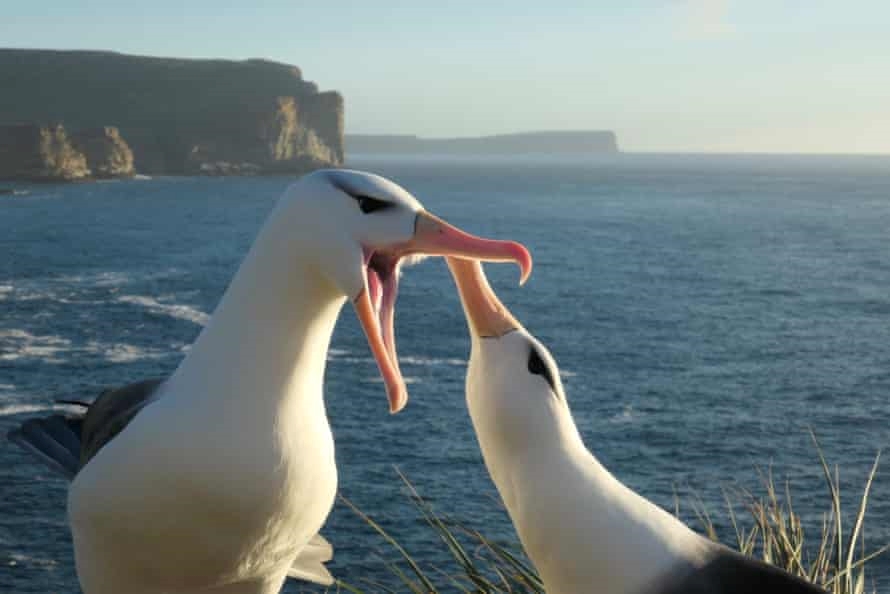Climate Change Pushes Lovers Away
Warmer waters, according to researchers, are pushing Albatross birds away to look for food, making them more anxious, resulting in relationship breakdowns.
-

Albatrosses are breaking up because of climate change.
Albatrosses, among the world's most devoted monogamous creatures, are "divorcing" more frequently, according to researchers, who believe global warming is the cause.
Climate change and rising oceans, according to a recent Royal Society study, are pushing black-browed albatross break-up rates higher. Only 1-3% of couples would separate after choosing a partner in pursuit of more romantic pastures.
However, in years when water temperatures were unusually warm, that figure continuously rose, with up to 8% of couples divorcing. Over 15 years, researchers studied a wild population of 15,500 breeding couples in the Falkland Islands.
Warmer waters bring fewer fish, less food, and a tougher environment for seabirds. Some fewer females survive. The stress hormones in the birds rise. They are compelled to hunt further afield.
Albatross love lives have long been a subject of scientific research, as they are some of the most devoted couples in the animal kingdom.
Devoted birds, separate
“There are all these things we think of as being super-duper human,” says Dr. Graeme Elliot, principal science adviser at New Zealand’s department of conservation, who has been studying albatrosses in the country’s waters for three decades.
The birds lend themselves to anthropomorphism: they live for 50-60 years, go through a protracted, awkward adolescent phase in which they learn how to attract a mate through dance, and travel for years at a time as they grow.
They normally mate for life, and they make a big deal out of welcoming a spouse after a long time apart.
However, they are increasingly sharing another rite of passage that may sound familiar to young humans: some are fighting to sustain relationships while under stress from the climate catastrophe, working longer hours to eat, and dealing with the logistical obstacles of traveling with a partner.
“We propose this partner-blaming hypothesis – with which a stressed female might feel this physiological stress and attribute these higher stress levels to a poor performance of the male,” he says.
The research comes as many international albatross populations are in trouble. “Their numbers are plummeting,” Elliot. The populations of wandering albatrosses that he examines have been diminishing at a rate of 5-10 percent per year since roughly 2005.
“If we’re talking about a population with a much lower number of breeding pairs, that disruption of a bond might definitely induce some disturbance in the regular breeding processes,” he said.
Less prey, warmer oceans, and more interactions with tuna line-fishing boats, which accidentally catch and kill the birds, are all contributing to the decline in numbers.

 3 Min Read
3 Min Read









